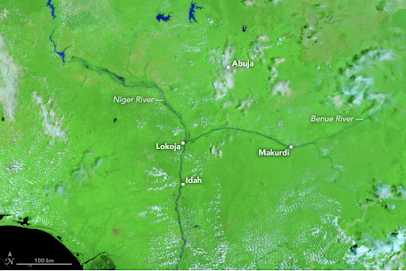Madagascar's Water Paradox

Land in Madagascar next to river bank in drought prone zone Among countries in Africa with complex water trends, Madagascar is a case that is useful to address. This is mainly due to Madagascar’s intensifying climate variability from environmental change, causing an increasing imbalance in precipitation across the island and rising extreme weather events such as flooding, cyclones and droughts. As you can see on Figure 1 , there is an important difference in climatic conditions depending on the region in Madagascar. On the Western and Southern parts, there is a higher mean annual temperature than the Eastern coast, as well as around 2000-3000 mm less annual precipitation in the Southern coast than the East. This gives rise to distinct weather occurrences depending on the region. Figure 1: Mean Annual temperature and mean annual precipitation in Madagascar obtained from the WorldClim database Water scarcity The region most affected by the case of water scarcity would be Southern Ma
